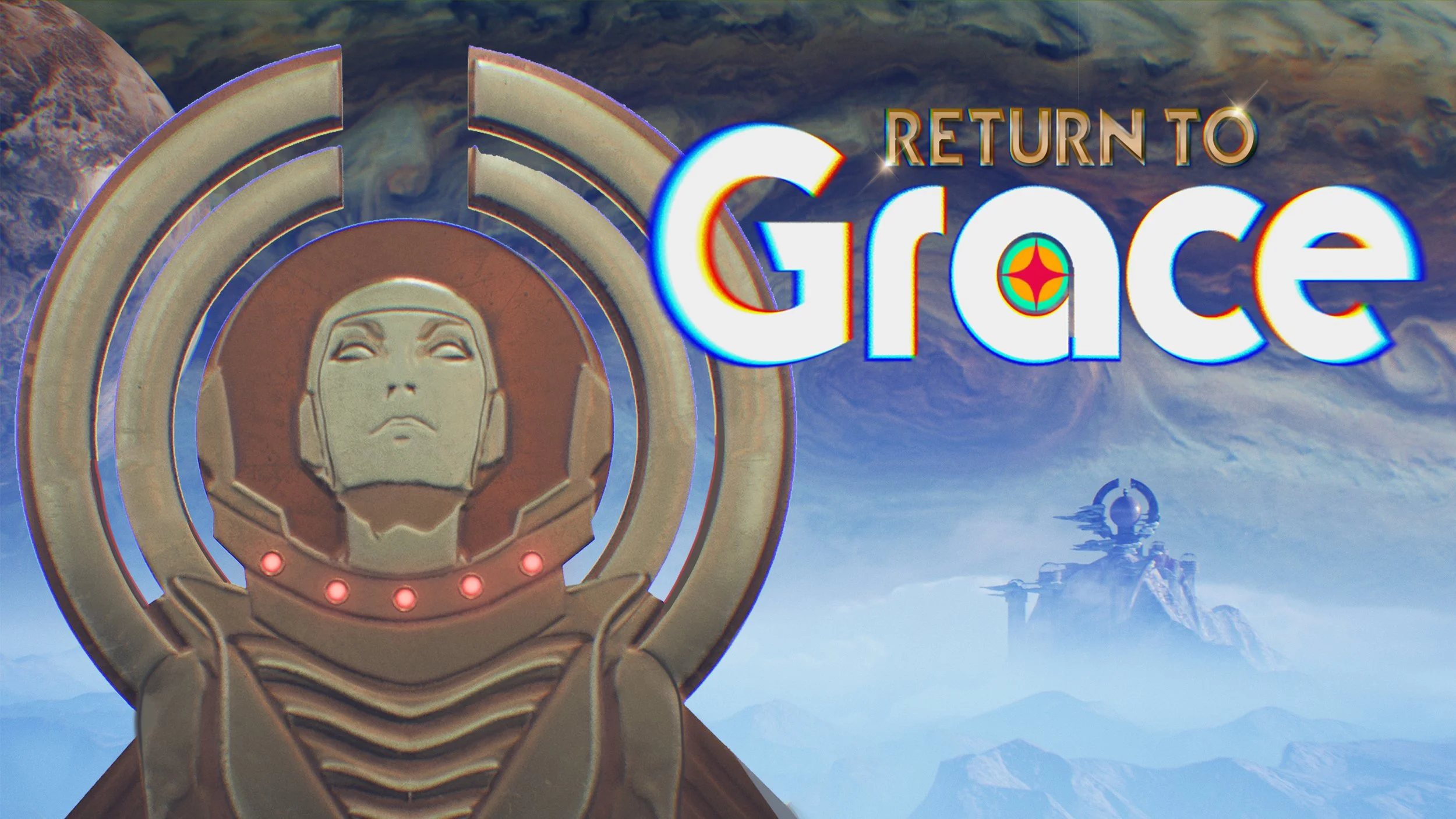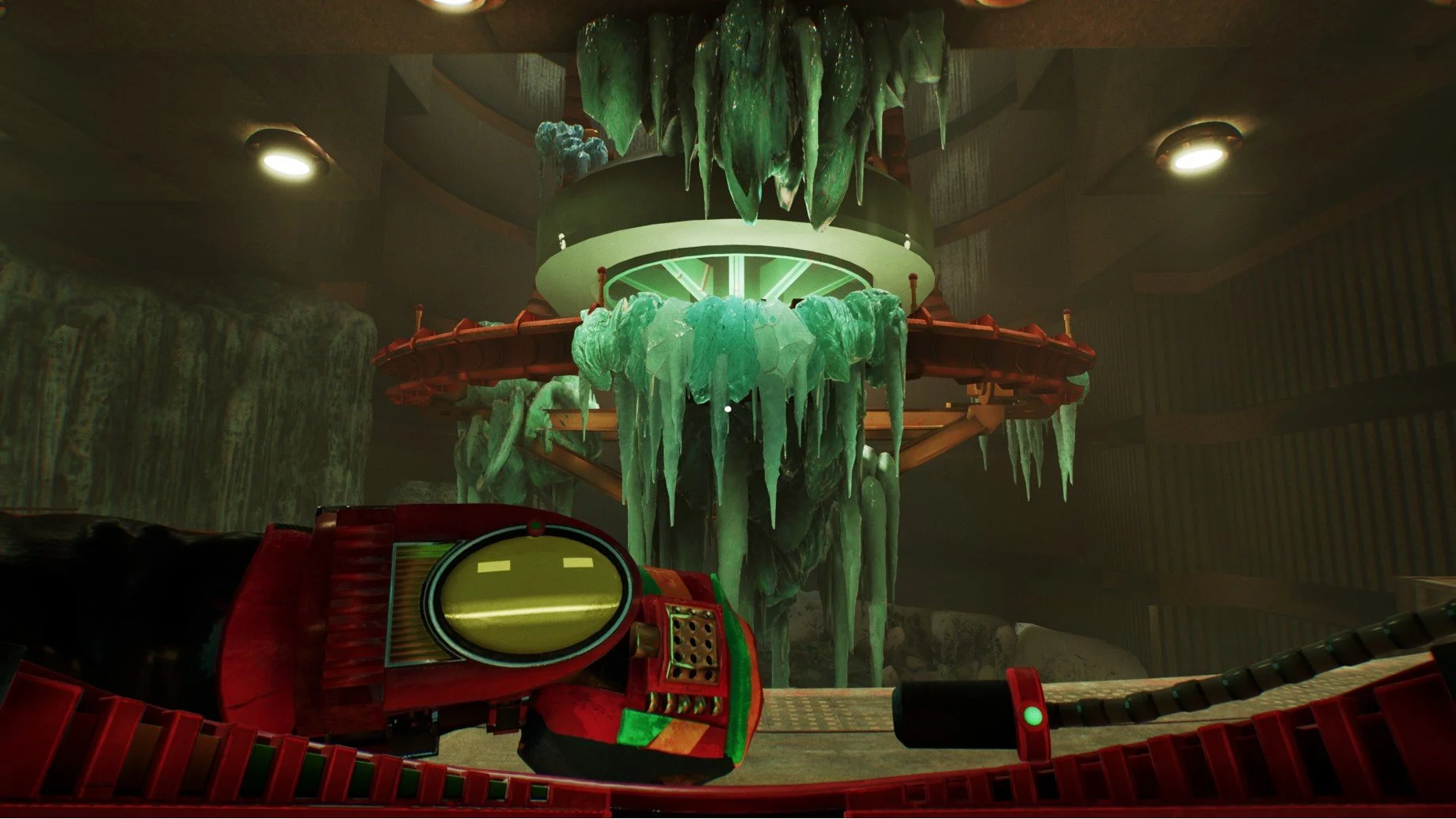Review | Return To Grace - Graceful Into That Goodnight
Creative Bytes Studios’ latest narrative adventure game, Return to Grace, isn’t remarkably complex. It doesn’t have to be. Within this short story lie a deep world, rich characters, and a complex exploration around themes of faith, self-determination, trust, and self-realisation. In just a few short hours, this simple little experience will take you on a journey that revitalises the soul and engages the mind.
Enter Return to Grace, and you’ll take on the shoes of Adie, a scientist, archaeologist and explorer in the distant 39th century. Adie has spent much of her life in search of the lost site of an ancient AI, Grace, that once led humankind into its golden age nearly one thousand years ago. The human race has fallen far since then, it seems, though we only learn this through inferencing the subtext of what Addie is really saying in the rare instances that she speaks about it. Crashing onto Ganymede after a one-way trip, we come into the experience as years of hard work finally pay off, and Adie finds the resting place of the long-lost AI.
Even Bungie would be jealous of these skyboxes.
From here you’ll explore the superstructure that houses Grace, solving puzzles, and slowly unravelling the mystery of why she disappeared. You won’t do this alone though. At the beginning of the game, Adie will bounce ideas off of her own shipside AI partner, Allen. There’s a believable sense of connection between the two, and it does well to foreshadow this game’s tone with just these characters’ voices and their personal dynamic. Throughout the rest of the game, you’ll primarily interact with a host of lesser AI fragments that once made up Grace. Logic, Control, and Empathy are the first three of these, but you’ll end up creating a few more along the way by splicing together different pairs of the original trio to help solve certain tasks.
In their own right, no particular character is conceptually original, embodying much of the archetypes of their namesakes. But they all still carry a great deal of identity. Empathy is deeply connected to and concerned for Adie, Control is overbearing and demanding, and so on. This grants a flavourful variety to the dialogue throughout the game. This is perfected by a careful understanding of character dynamics, with each and every interaction between the various personalities and Adie herself carrying the right dramatic weight or tension-breaking humour when they need to. Despite Addie being the only human around, the characters are the heart of this game, and both the writers and talented cast of voice actors deserve praise for their work in bringing both Addie and artificial programs to life.
“Ooooooh, I love your furniture. Where’d you buy it?”
Beyond the great characters, Return to Grace’s story is elevated by the game world itself. It’s a clear love letter to 1960s sci-fi and art deco. While this might juxtapose with the suspension of disbelief required to perceive this aesthetic as something we could connote to what would have been the 26th century, there’s no denying that it looks fantastic all the same. The inspiration is integrated in such a way that it brings across the humanity of the structure that ironically houses none but the inhuman. There’s an amazing variety in location design as well, with every setting you’ll visit in the game getting its own distinctive look and feel.
These elements combine to build the foundation upon which the story is told. You will come across puzzles in this environment too but don’t expect anything remarkably challenging, as the narrative’s pacing has rightfully been given priority.
The story is a culmination of all of what makes Return to Grace so compelling at first glance. It’s ultimately focused on our protagonist as it should be, but her interactions go the extra mile to really make you connect with Adie as a person, from motivation to personal quirks all working towards painting a picture of this character and who she is by the time the ending comes around. This ending isn’t set in stone either, with player decisions that dictate interactions with different AI personalities tailoring the finale. This won’t completely rewrite the end of the game, but it’s an appreciated way to add replayability to the journey and make Addie’s story a bit more of your own.
I’m glad someone is still finding uses for the Nintendo Power Glove.
What an ending it is, too [minor story spoilers for the rest of this paragraph] . While I’ll avoid revealing too much, it’s impossible to touch on this culmination of the narrative without giving at least a little of it away. The end of the game sees you find the truth about Grace’s disappearance all those centuries prior. It leaves on an ambiguous note, with two choices laid out between Adie: Bring Grace back into the fold in this struggling solar system, or allow humanity to find their path onward without her. The build-up to this point is paced to perfection, and the thoughts it leaves for you to dwell on are profound, and land exactly what was needed to cap off this experience.
Return to Grace is a short game. The average player is probably going to complete a full run-through in under three hours. However, the only criticisms I could perhaps level against it feel like nit-picks. “Are there really only those two options to go forward with in the end?”, “What was the true extent of Grace’s relationship to humanity?”, and “ Why did that relationship between them take the particular shape it did?” In fact, there are a thousand questions like these in my mind now, and all of them are there because as fascinating as this game and its philosophies and questions are, it feels as though we only just began to answer it all.
“These lights really clash with this carpet, if I’m honest. And don’t get me started on the alter!”
This experience is worth it, though. Characters, setting, and story converge in the exact way they need to for a narrative adventure game needs to succeed. But there is a world full of promise here, a hidden expanse of questions and ideas and thesis behind Return to Grace that I feel a deep desire to explore further. Not only is it a good kind of flaw for any game to have, but it also gives an opening for more to happen within the far future universe Return to Grace has built. If the studio chooses to go further with it or choose to keep it as a standalone grace, I’m certain I’ll be watching the future projects of Creative Bytes Studios with great expectations.










